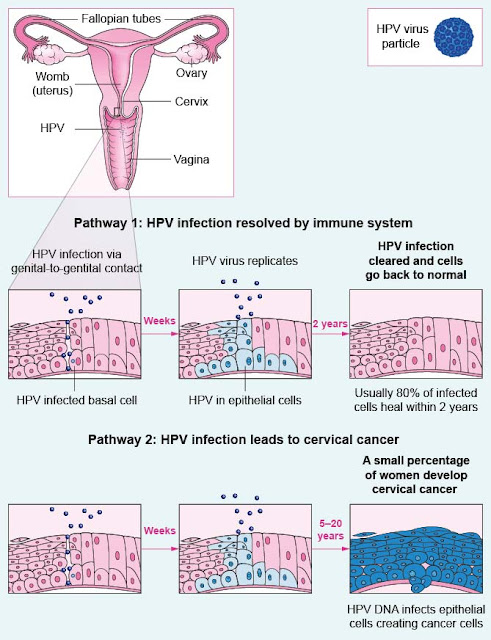In women, cervical cancer is one of the most common cancer worldwide. It occurs in the cells of the cervix, which is the lower part of the uterus that connects to the vagina.
A virus called human papillomavirus (HPV) is usually the main cause of almost all cases of cervical cancer. Women, after they begin having sexual intercourse, are at risk of developing this type of cancer.
Some of its risk factors are genetic, poor immunity, multiple pregnancies, use of oral contraceptives, unsafe sex, being overweight, multiple sex partners, and first pregnancy at a young age.
During its early stages, this cancer does not show any symptoms. Symptoms are more prominent after the disease has already spread to the lungs, intestines, liver or bladder.
You can save yourself and others from a lifetime of suffering by knowing these warning signs of cervical cancer.
Pain During Intercourse
This symptom means that cancer has already spread throughout tissues and reproductive organs. Aside from pain, you may also experience symptoms like thick, foul-smelling vaginal discharge.
Infection or STD could be the other reasons for this particular problem.
Unexplained Weight Loss
Unexplained weight loss can indicate cervical cancer. The immune system works hard to fight your cancer.
Cytokines, which are small proteins produced by the body, break down fats at a much higher rate than normal which further leads to weight loss.
Pelvic Pain
Aches and cramping are just normal part of the menstrual cycle. However, if it lasts for longer period of time then, it could be a sign of cervical cancer. Pelvic pain may start suddenly at any time during the month and this does not occur unless the cancer is in a very advanced stage.
Discomfort While Urinating
Discomfort during urination is one of the most obvious symptoms of this disease. Such urinary discomforts include stinging, burning, or a tight sensation while urinating. These symptoms occur when cancer has spread to nearby tissue.
Other reasons for urinary discomforts are bladder problem, sexually transmitted disease, yeast infection, and urinary tract infection.
Abnormal Vaginal Bleeding
Vaginal bleeding that occurs regularly could be an indicator of cervical cancer. As cancer spreads to nearby tissues, new and abnormal capillaries are created and break easily that cause bleeding. Such bleeding may happen between menstrual period, after menopause, after sexual intercourse, and even after a pelvic exam.
Unusual Vaginal Discharge
Vaginal discharge is just normal. But if it increases, it has an irregular appearance and smells foul then, it could be a sign of an infection or endometrial cancer.
Vaginal discharge could be heavy, watery, brown, pale or mixed with blood when you are suffering from cervical cancer.
Heavier And Longer Menstrual Periods
Heavier and longer periods are caused by irritation of the cervix, maybe because cancer has already spread.
If you have to change sanitary napkins or tampons more often than once every 2 hours, bleeding is considered heavy.
Aside from cancer, other reasons for heavy bleeding are polyps, endometriosis, hormonal imbalance, pelvic inflammatory disease or thyroid, fibroids or thyroid, kidney, or liver issues.
Loss Of Bladder Control
If you are experiencing frequent bathroom breaks without any known reason then, you may need further evaluation.
When suffering from cervical cancer, bladder control is a primary issue. It indicates that cancer has spread beyond a localized area and already affects the bladder or other parts of the urinary tract. Loss of bladder control coupled with blood in the urine is often experienced by people diagnosed with this type of cancer.
Leg Pain
Swelling and pain in their legs are often experienced by women who were diagnosed with cervical cancer. Once cancer spreads, it blocks blood flow, thus causing swelling in the legs. Swollen legs are associated with sore and painful sensation, making it hard for you to do your day-to-day activities.
Constant Fatigue
It could be a cause for concern if you still feel low or lack energy most of the time despite resting.
In order to fight off your cancer, white blood cells replace healthy red blood cells and this causes anemia which leads to fatigue, loss of appetite, and lack of energy. There is also a decrease in oxygen supply to the body.










